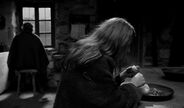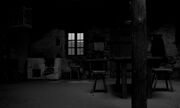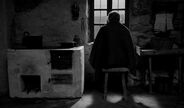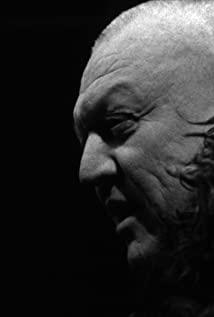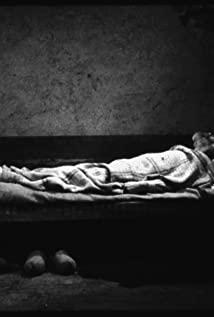On January 3, 1889, Nietzsche saw a coachman whipping an old horse with a whip in Turin's Piazza Carlo Alberto. He hugged the old horse's neck in pain and eventually lost it sanity. At the beginning of the film, Beratar told the matter with a one-minute black screen and voice-over, and [The Horse of Turin] followed the later story of the old horse and the coachman. The movie doesn't tell you the mystery of Nietzsche's madness directly, but Tarr says, "Nietzsche is to this film as much as the horse and ourselves." This philosopher, who is absolutely aristocratic in temperament and cultivation, finally used his cultural criticism article to criticize his former preferences and friends, such as the educator Schopenhauer and the musician Wagner. This is also the "horse of Turin" incident. part of the reason.
The film is still a Beratar-style long shot. The 146-minute film is no more than twenty long shots, recording the lives of the coachman, the groom's daughter and the old horse in six days. God created the world in seven days, Bellatar destroyed everything in six days, there is no seventh day, the seventh day may have a new turn, or it is the end of the century. For fans who don't know Tal, it may feel that this is a dull film of artistic style. For fans who are familiar with Tal, it is easy to find useful iconic symbols from long shots, such as the unchanging life. Details, fetching water, washing dishes, cleaning, feeding horses, eating potatoes, and the amazing changes are the subtle changes in movement, elevation, scene and composition of similar long shots in each plot, plus different mise-en-scene , the amount of information captured and the visual impact are completely different.
The environment of the story is very similar to the director's previous Hungarian Plains trilogy, such as the unplayable rain in [Purgatory World], the strong wind and heavy rain in [Satan Tango], and minus ten degrees in [Incomplete Harmony] In the cold winter when there is no heating supply, the six days in [The Horse of Turin] are also full of wind and sand, making it difficult for people to walk. In the harsh living environment, people must fight with the environment in order to live, so people's selfishness and inferiority are more obvious. On the third day of the film, a group of gypsies compete with the groom's family for well water, which is a portrayal of human inferiority. The six days in the film are very simple. On the first day, everything is the repetition of the life of the father and daughter for decades. Passed by, annoyed the groom and left a fable before leaving; on the fourth day, the water in the well dried up; on the fifth day, the groom and his daughter were packing their luggage and preparing to move. Even the kerosene lamp could not be lit; on the sixth day, the most basic life of the father and daughter was no longer guaranteed. There is no seventh day, because this is not the Genesis of God, but the Apocalypse of Beratar.
There are three particularly impressive strokes in the film. The first is the long shot at the beginning of the film, accompanied by the fierce soundtrack by Mihály Víg, the composer Mihály Víg, who repeats the German romanticism of the whole film. The old horse went home all the way, making people feel the urge to cry. The second is the return of the father and daughter in the middle of the move. You can see the trivialities of the surrounding environment, but the long shot does not care about the tragic father and daughter. The humbleness and insignificance of life are unbearable. The last place is at the end of the movie, the father and daughter, who have run out of necessities of life, are facing the raw potatoes on the plate. The groom tells his daughter the same dialogue he said to the old horse before: "You have to eat", everything is just Live for the most basic.
It is conceivable that Tarr spent three years brewing this film. The details of each shot must be the result of deliberate design. Whether it is the progression of the plot or the arrangement of the shots, or this story with infinite meanings, people can interpret it infinitely. . No wonder some film critics joke that the movie no longer ends with Abbas, it now ends with Beratar.
【Beijing News】
View more about The Turin Horse reviews



